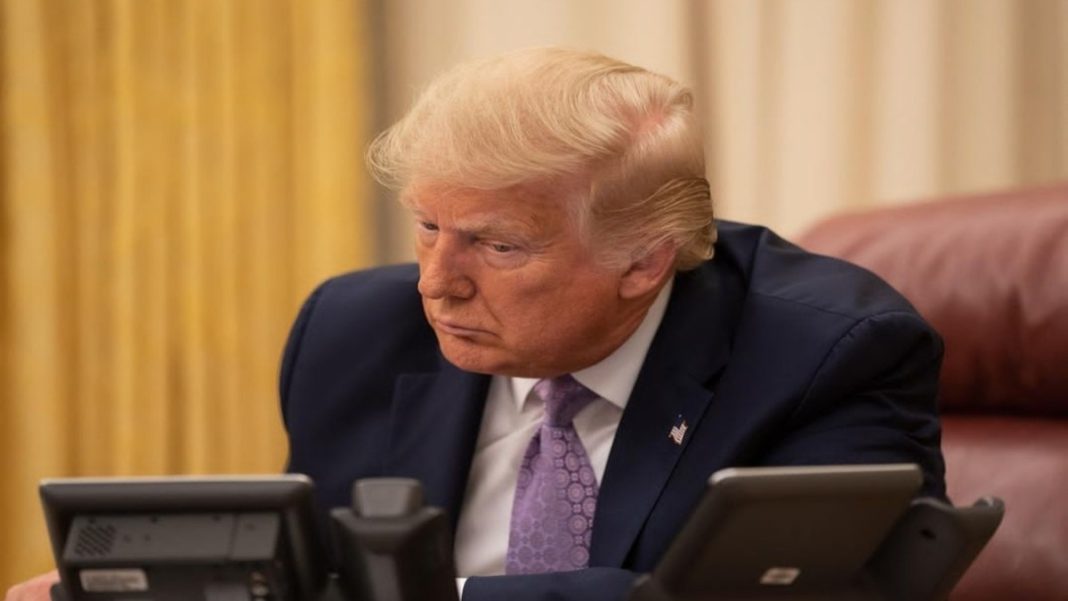UNITED STATES: Even when Donald Trump was president, he lacked the legal power to declassify a document pertaining to American nuclear weapons that he is accused of illegally holding, said the security experts, contrary to the former United States president’s claim.
The secret document, identified as No. 19 in the indictment accusing Trump of jeopardising national security, can, under the Atomic Energy Act, only be declassified through a process that, by law, involves the Departments of Energy and Defence.
For that reason, the experts stated, the nuclear document is distinct among the 31 indictments because the declassification of other documents is governed by executive order.
Steven Aftergood, a government secrecy expert at the Federation of American Scientists, said that the claim that he (Trump) could have declassified the nuclear weapons material is irrelevant because it was classified by law, not by executive fiat.
The unique status of nuclear-related material further deteriorates what many legal experts claim is a weak declassification-based defence. Without providing proof, Trump has contended he declassified the documents prior to removing them from the White House.
The prosecution is likely to argue that declassification is irrelevant because Trump was indicted under the Espionage Act, which predates classification and criminalises the unauthorised retention of “national defence information,” a broad term that covers any secrets that could be useful to the country’s enemies.
The designation “FRD,” which stands for “Formerly Restricted Data,” is placed on Document No. 19, designating that it contains classified material pertaining to the military’s use of nuclear weapons. It was stated in the accusation as undated and “concerning the nuclear weaponry of the United States.”
Trump, who entered a not-guilty plea on Tuesday, has claimed that he declassified the more than 100 secret documents he brought to his Florida vacation home, Mar-a-Lago, while still in office. Republican senators and other supporters have echoed this claim.
However, Aftergood and other experts claimed that the Atomic Energy Act (AEA) of 1954, which established the Department of Energy’s authority over the nation’s nuclear arsenal, established a procedure for declassifying nuclear weapons data, some of the American government’s most closely held secrets.
“The statute is very clear. There’s nothing that says the president can make that decision,” stated a former US national security official knowledgeable about the classification system.
According to a DOE guide entitled “Understanding Classification,” the most sensitive material pertaining to nuclear weapons is labelled “RD,” or Restricted Data, and it includes information on warhead designs as well as the manufacturing of uranium and plutonium.
Experts claimed that although the Department of Energy downgrades the nuclear weapons data it must share with the Pentagon from RD to FRD, the materials remain secret.
According to the guide materials classified as FRD, they include information on the size of the American arsenal, the storage and security of warheads, their locations, and their yields or power.
A Justice Department FAQ page states that the only way FRD information may be made public is through a procedure controlled by the AEA in which the secretaries of defence and energy decide that the classification “may be removed.”
Not everyone agrees that the president has no authority to declassify nuclear information.
David Jonas, who worked for ten years as chief counsel for the Department of Energy’s National Nuclear Security Administration, which is in charge of managing the nuclear arsenal, states that Trump has the constitutional authority to declassify all sensitive documents under the “unitary executive theory,” which maintains that Congress cannot restrict the president’s control over the executive branch.
He stated that because the president is the executive branch, he has the authority to declassify any nuclear information.
Other experts disagree with this viewpoint. Elizabeth Goitein, a national security law expert at the Brennan Centre for Justice, stated that “there is no question” that Congress can pass laws in this area because the US Constitution gives it the right to restrict presidential authority over the majority of national security matters.
While the president can ask for FRD documents to be declassified, “it’s got to go through both DOE (Department of Energy) and DOD (Department of Defence). And it takes forever,” director of the National Security Archive Thomas Blanton said.
FRD materials must be kept in a secure location, stated Aftergood, adding that “sticking it in your bathroom would not qualify” in reference to the indictment’s claim that Trump kept secret papers in a Mar-a-Lago bathroom.
Also Read: Biden to Make Strong Re-Election Bid in Crucial Swing State of Pennsylvania



